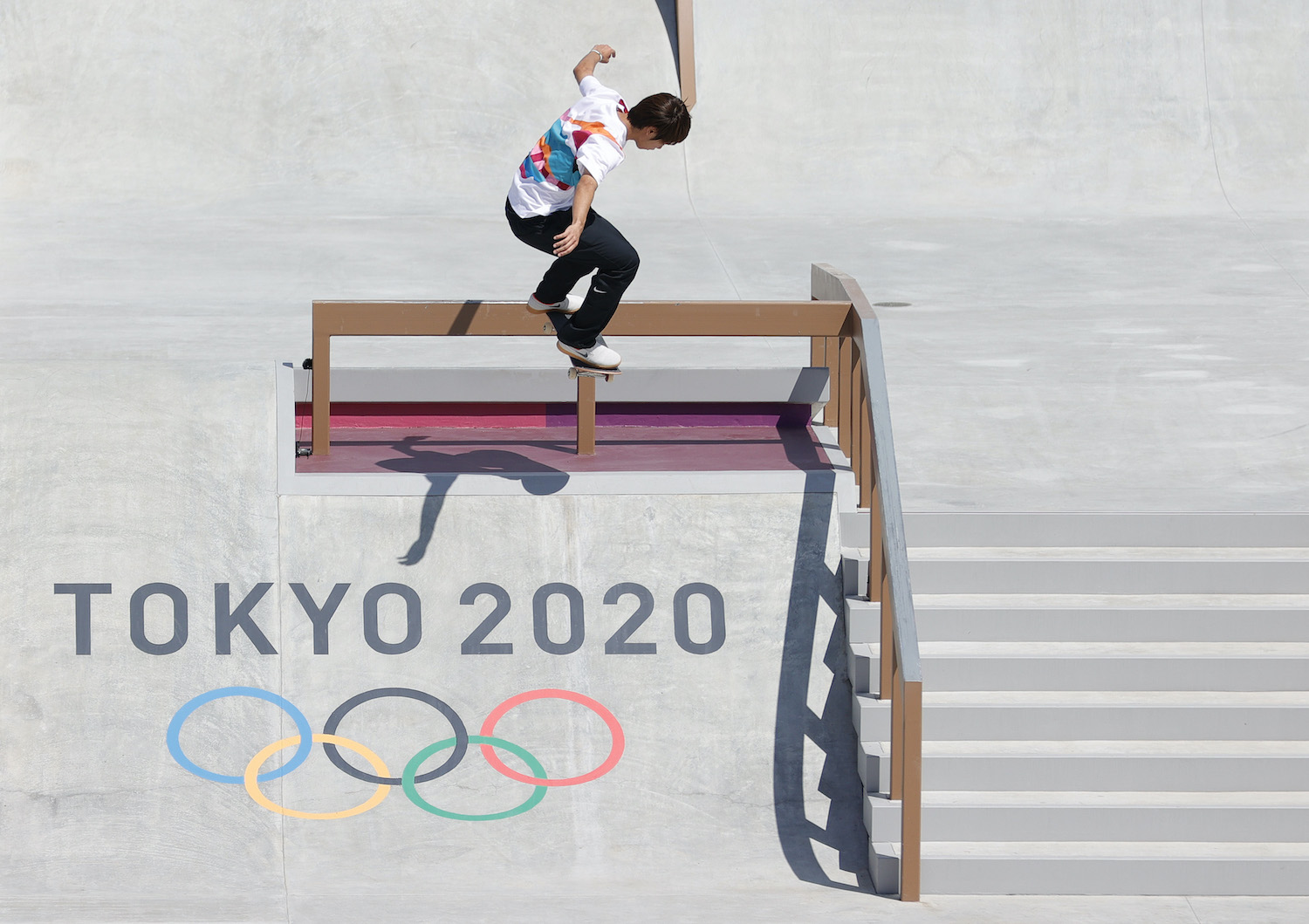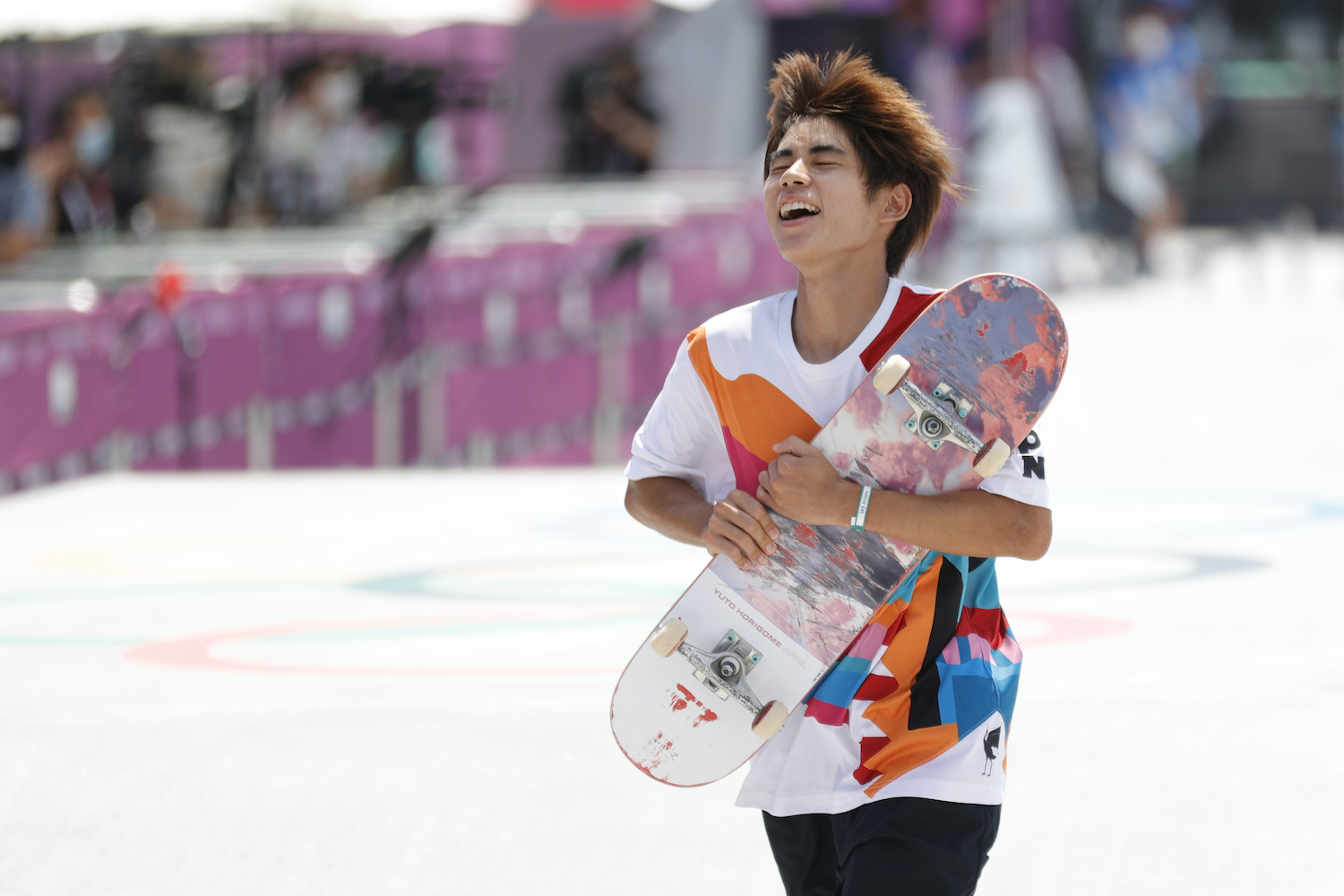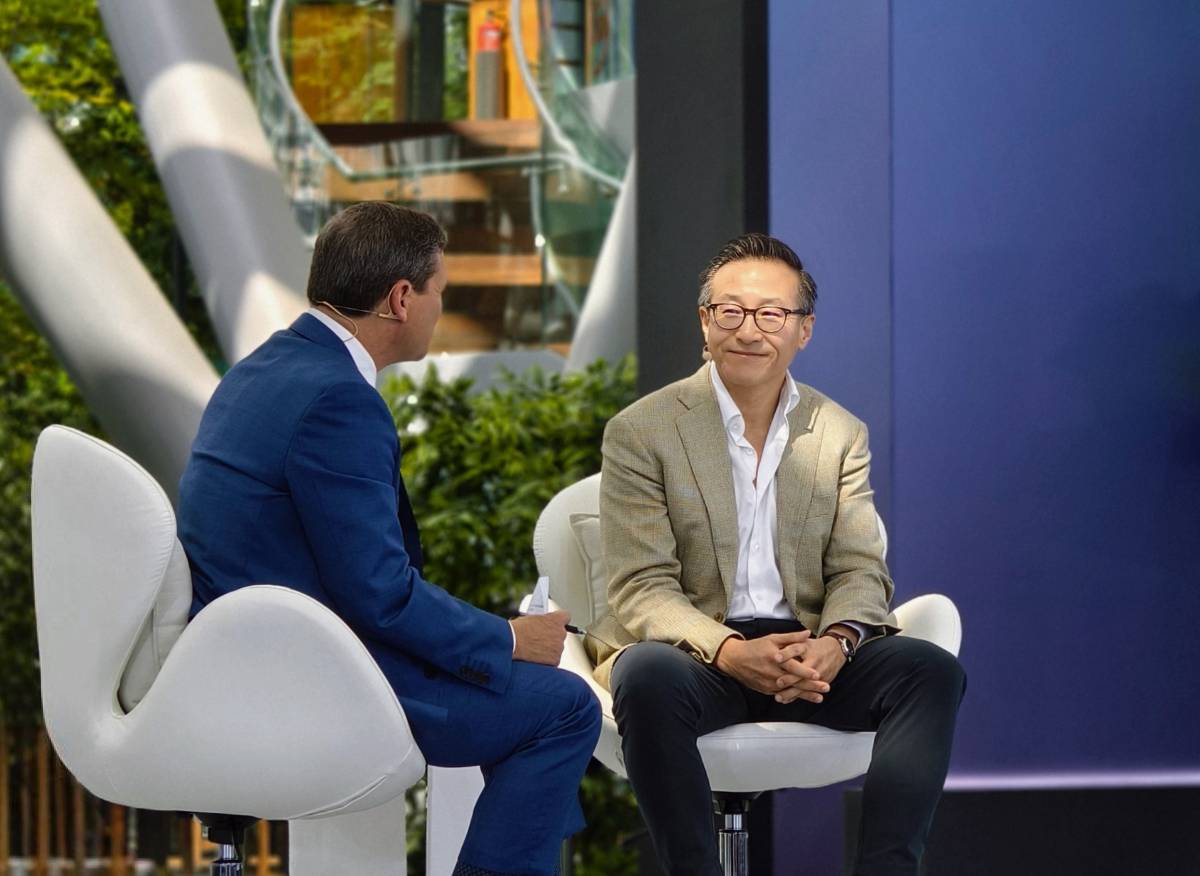
Yuto Horigome wins the inaugural men's street competition in skateboarding's historic debut at the Olympic Games. Photo by Sarah Stier/Getty Images for Alibaba
Japanese pro skater Yuto Horigome made history when he became the first skateboarding champion at the Olympic Games Tokyo 2020, where the once-stigmatized street sport made its Olympic debut this year.
The 22-year-old athlete took gold in the men’s street final on July 25, at a podium in the Koto ward, in the eastern part of Tokyo, just miles away from where he had grown up.
In an interview with Alizila, Horigome talked about competing on his home turf, defying social stigma and misconceptions of skating growing up in Japan and collaborating with tech giant Alibaba Group in producing a video to tell his story.
This interview transcript has been edited for clarity and brevity
You’ve worked extremely hard for the Olympic Games this year. How did you feel competing?
It was an unforgettable experience of a lifetime. This year, the Olympic Games took place in my hometown, Tokyo. All of the support from my family and friends from the Koto ward, where I was born, was especially motivating and was a big source of strength for me.
Your win also marks the first gold medal for skateboarding. It is inspiring young skateboarders to think that the sport – once frowned upon as anti-establishment and rebellious – has now been recognized as an official sport at these Games. What’s your take on that?
Skateboarding being added to the Olympic Games was a great opportunity to raise the sport’s profile, so more people, who haven’t had the chance yet, can see what makes it so interesting and cool. I think skateboarding will gain more traction globally and eventually become a mainstream sport, just like baseball, basketball and soccer. We will see more skate parks in cities and the overall environment for skateboarders will improve.



Tell us more about your skateboarding journey. When did you first pick up the sport and decide to go pro? What drew you to this sport in particular?
My dad was a skater, and I’d tag along with him as a kid. My first encounter with skateboarding was sitting on a skateboard instead of standing on one. And the more I played, the more it grew on me.
I was inspired to become a professional skateboarder after watching videos of pro skaters. I remember the first time my dad showed me the videos. I wasn’t very good back then, so I couldn’t fully appreciate just how cool they were. But I eventually could with more practice and really started to enjoy skateboarding. That’s what led me to decide to train professionally in the U.S..
I think the beauty of skateboarding is that it makes you feel free and allows opportunities to meet and become friends with all kinds of people around the world. There are a lot of tricks no one has seen before or haven’t even been invented yet. It’s not just about competitions: you can skate in the streets or make video work. In that sense, there’s no end or limit to skateboarding. What makes me the happiest is just skating with my friends.
Alibaba recently made a video featuring you, as part of its Tokyo 2020 campaign to cheer for Olympians and celebrate their hard work and spirit. The video tells how skateboarders come up against challenges, including traditional expectations in Japanese culture. How much of that speaks to your personal experience?
I feel very grateful to see skateboarding recognized as an official part of the Olympic Games this year and to have received support from a company such as Alibaba. Growing up, skateboarding wasn’t recognized as a sport by the Japanese public. I would get lambasted, with people angrily telling me to get off the streets. I’d leave and find somewhere else to skate.
Whatever people said to me, I genuinely love skateboarding and it has never crossed my mind to give up. I kept skating with friends – taking joy in it – and little by little, I improved.
It’s been a difficult time for not only athletes but people around the world. Alibaba’s campaign celebrates how people have shown resilience and unity, hung onto hope and moved through hardships. What was your experience during the pandemic and what motivated you to move forward?
I was in the U.S. when the virus spread globally. Cases were rising, and I couldn’t go to skate parks, so I skated on the concrete in front of our shared house. My roommate, who’s also a skater, also built a small ramp in our parking lot for us to practice.
After bringing home gold at Tokyo 2020, what’s next for Yuto Horigome?
I want to make more video parts. I filmed one just before the Games and hope to work on even more gnarly videos. There are also many places that I haven’t seen and would like to go to and meet more friends through skateboarding.
Editor’s note, 08.18.21: An earlier version of this story incorrectly stated the location of the men’s street skateboarding event.




